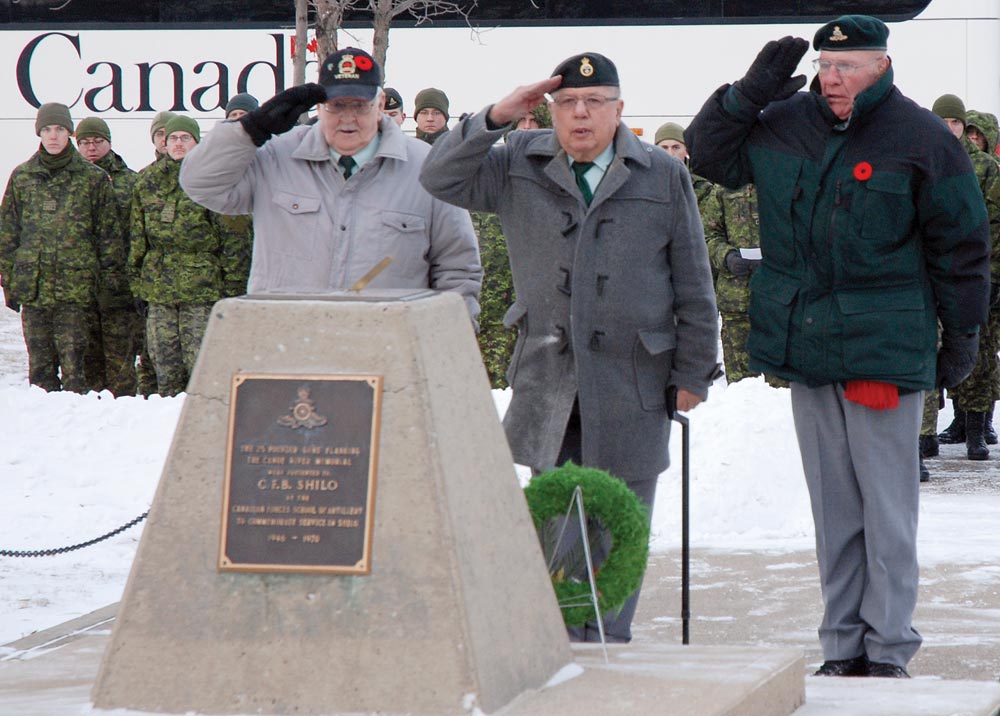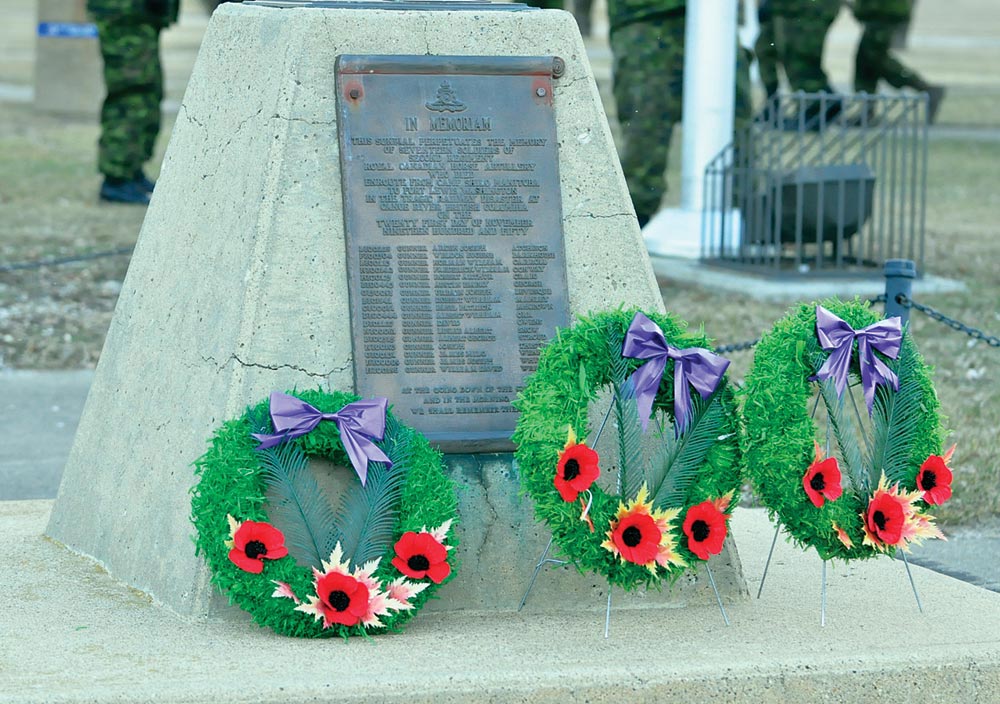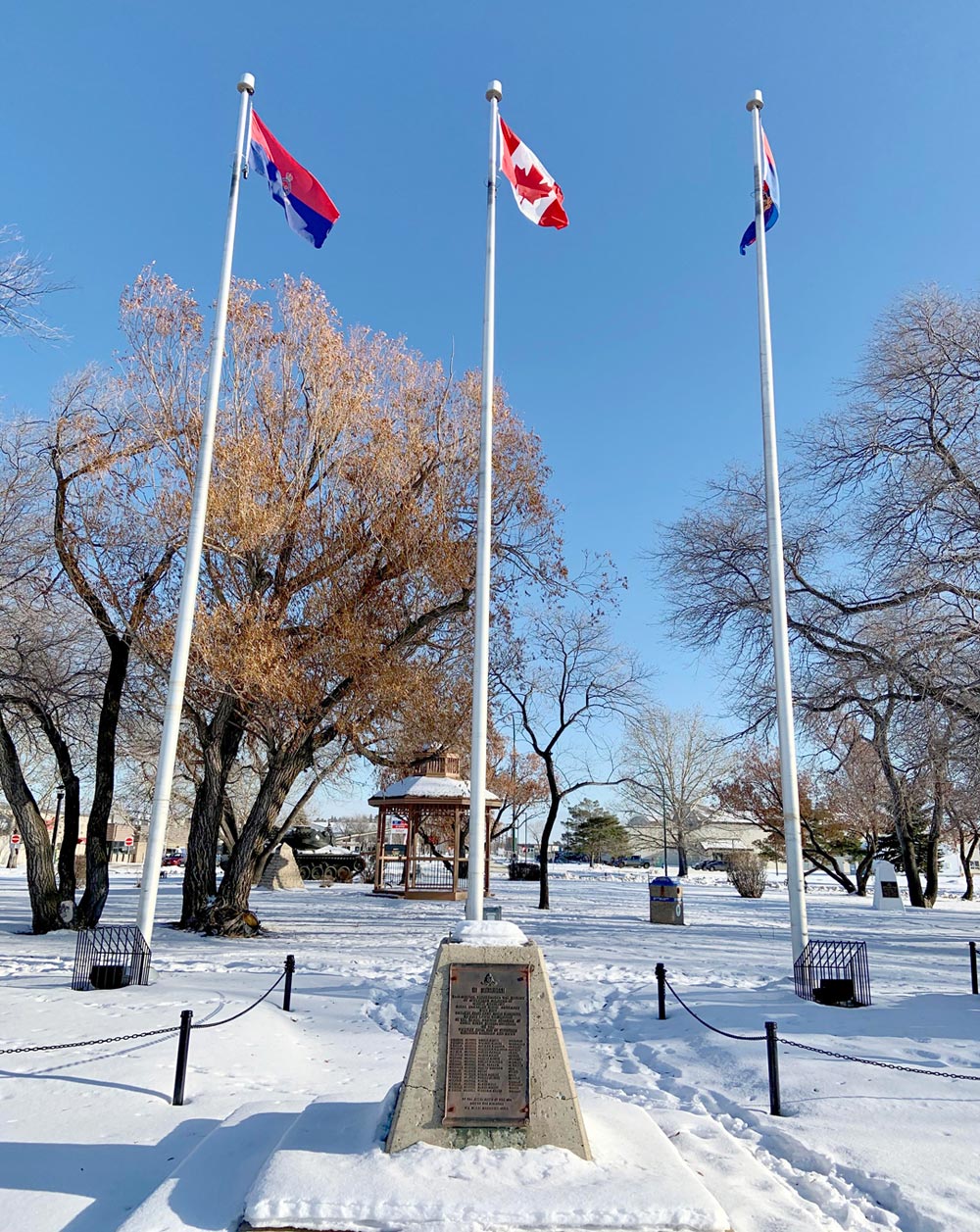
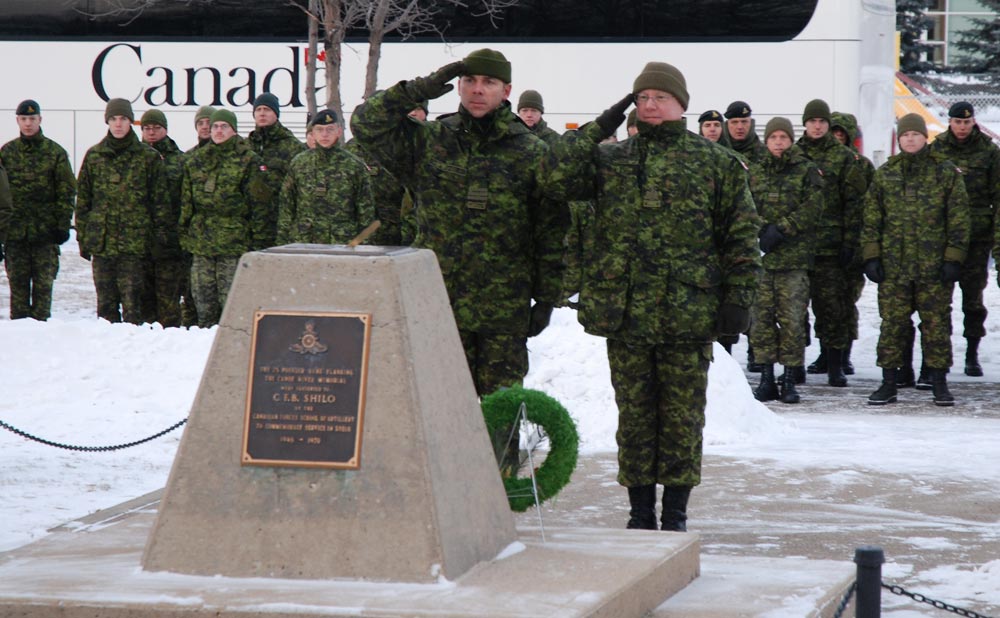
Shilo Stag
New to the Base, and wondering what the park why the the green space there is called Canoe River Memorial Park?
It was the height of the Korean War.
A train laden with 2nd Regiment, Royal Canadian Horse Artillery troops via CFB Shilo was on its way to Washington State prior to sailing for Korea. On Nov. 21, 1950, the westbound mostly wooden troop train slammed head on into a heavier eastbound passenger train near Canoe River, BC.
Seventeen soldiers lost their lives, along with two engineers and two brakemen in each of the two locomotives.
At CFB Shilo nearly six decades later, hundreds took part in the annual Nov. 21 pre-dawn service held at the Canoe River Memorial Park. At Remembrance Day services at the same site 10 days earlier, similar tributes were made to the Canoe River tragedy.
According to Veterans Affairs Canada, the collision all those years ago is thought to be due to a misunderstanding.
“The eastbound passenger train expected to meet a troop train at Cedarside, east of where the collision occurred, while the westbound troop train expected to meet the passenger train at Gosnell which is west of the scene of the accident. The two trains met on a very sharp curve and although both were travelling at moderate speeds, neither saw the other until almost the moment of impact. The injured soldiers were fortunate that civilian medical help arrived quickly; the troop train’s medical officer had disembarked in Edmonton. The uninjured gunners, after a short rest and a chance to reorganize, left Wainwright for Fort Lewis on Nov. 29. Fort Lewis in Washington State was selected as the point of embarkation for the Canadians en route to Korea.”
Among those losing their lives in 1950 were:
• Gnr Arden Joseph Atchison from Loon Lake, Saskatchewan,
• Gnr Weldon Eugene Barkhouse from Wolfville, Nova Scotia,
• Gnr Norman William Carroll from Pennant, Saskatchewan,
• Gnr Frederick William Conway from Grand Falls, Newfoundland,
• Gnr Robert Arthur Craig from Foam Lake, Saskatchewan,
• Gnr Austin Emery George from Canso, Nova Scotia,
• Gnr Urbain Joseph Levesque from Ottawa, Ontario,
• Gnr Robert William Manley from Niagara Falls, Ontario,
• Gnr Basil Patrick McKeown from Moscow, Ontario,
• Gnr Albert William Orr from Calgary, Alberta,
• Gnr David Owens from Granby, Quebec – who died Dec. 9, 1950,
• Gnr Leslie Albert Snow from St. John’s, Newfoundland,
• Gnr Albert George Stroud from Howley, Newfoundland,
• Gnr Joseph Thistle from Conception Bay, Newfoundland,
• Bdr James Milo Wenkert from Cowansville, Quebec,
• Gnr James Joseph White from Placentia Bay, Newfoundland, and
• Gnr William David Wright from Neepawa, Manitoba.
Those killed in the train crash were added to the list of 516 Canadian soldiers who died during the Korean War.
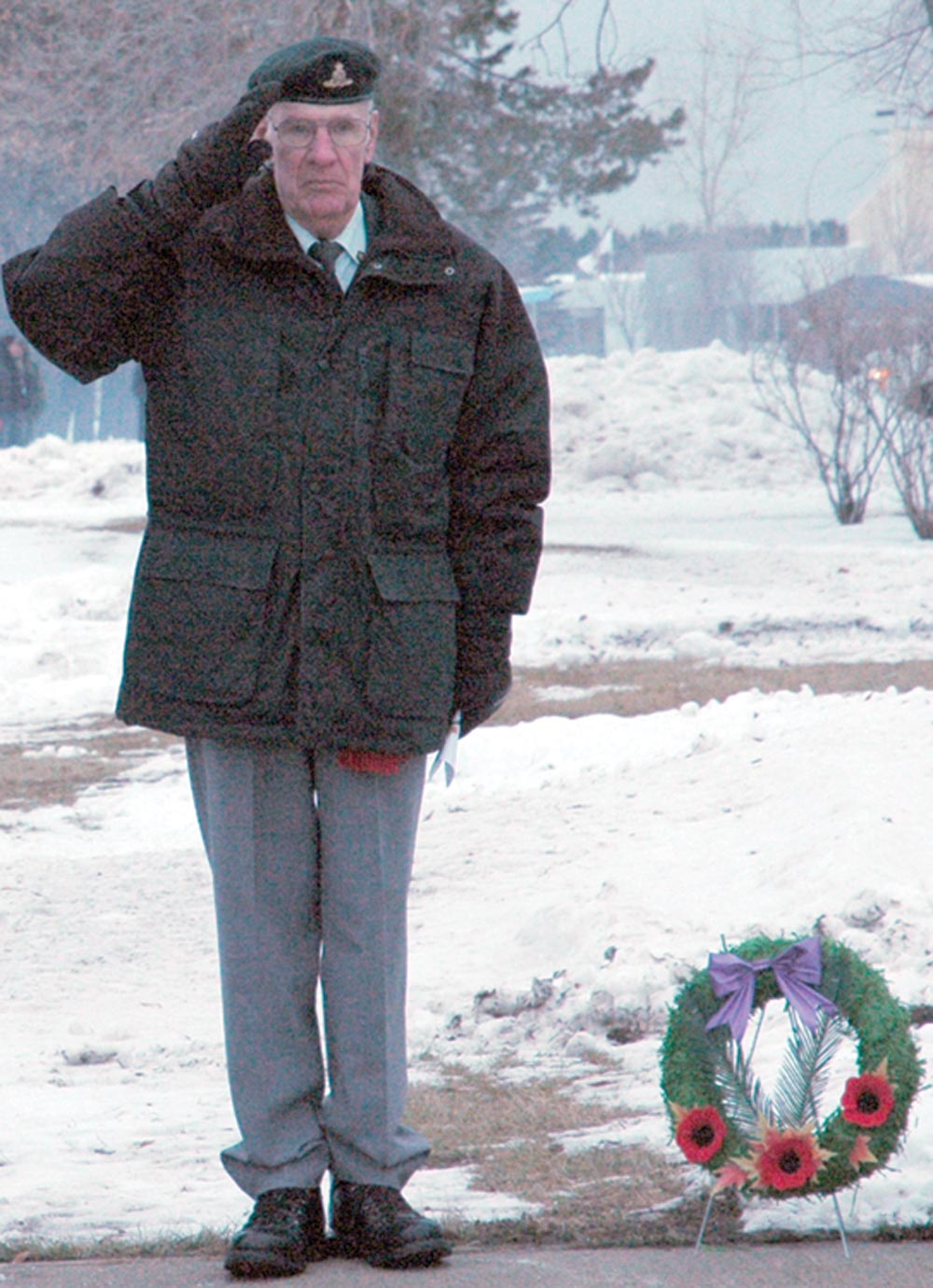
In the past, Canoe River Memorial Park would host a ceremony to mark the anniversary of the tragic accident in British Columbia during the Korean War. The names of those killed are on a plaque on the park’s cairn, where the late Korean War veteran WO David Lucas (1933 – 2013) salutes during one of the many his attended. The park takes on a different look during the four seasons. Photos Jules Xavier/Shilo Stag archives
